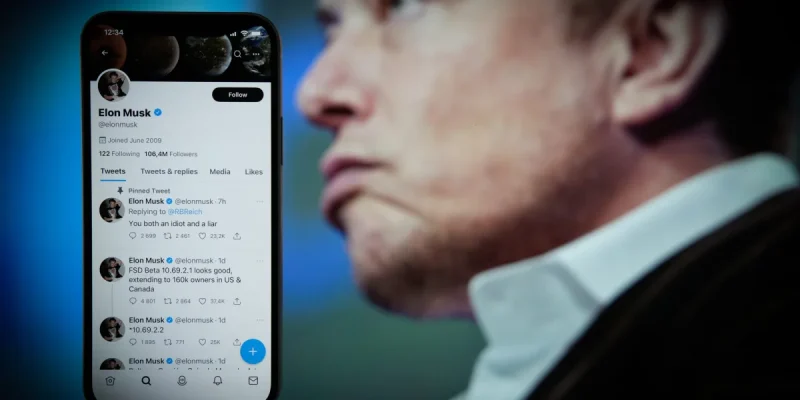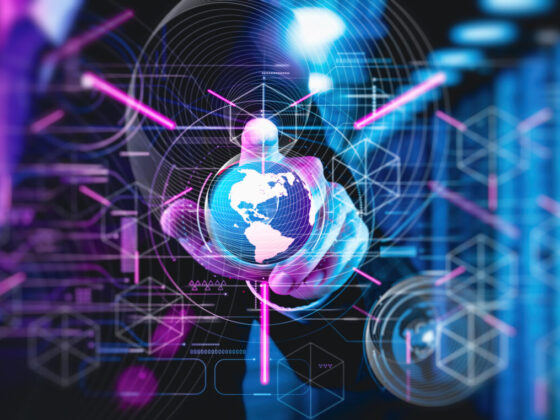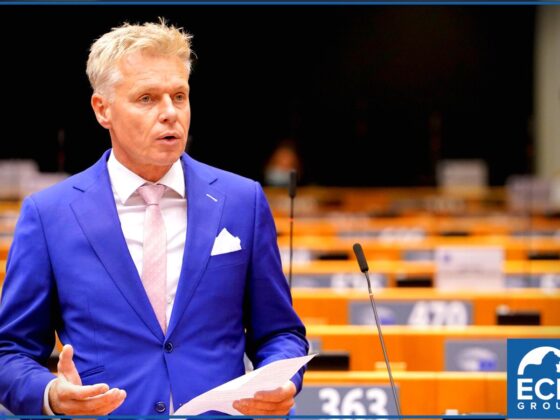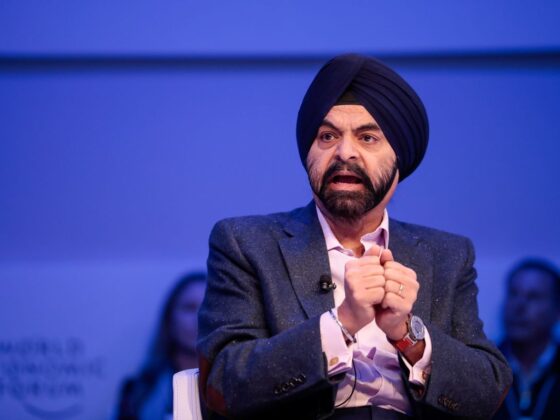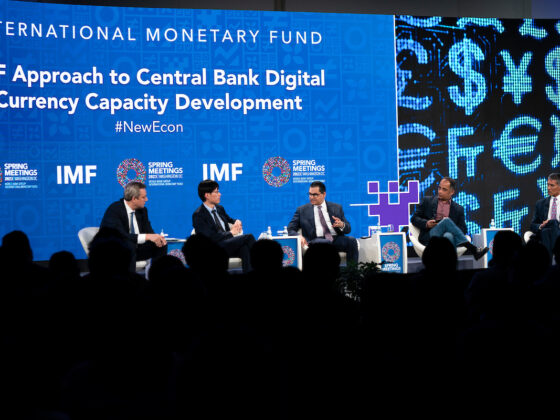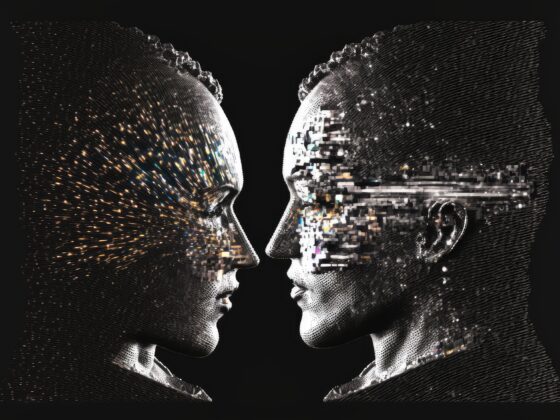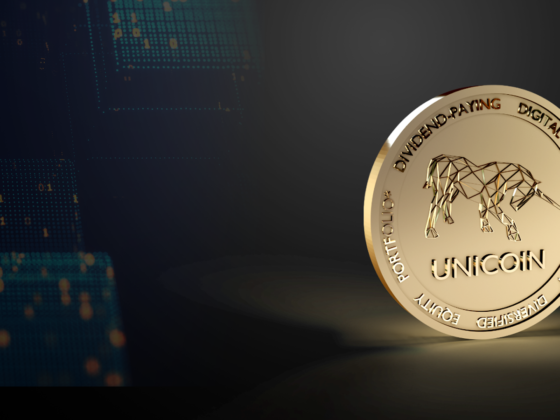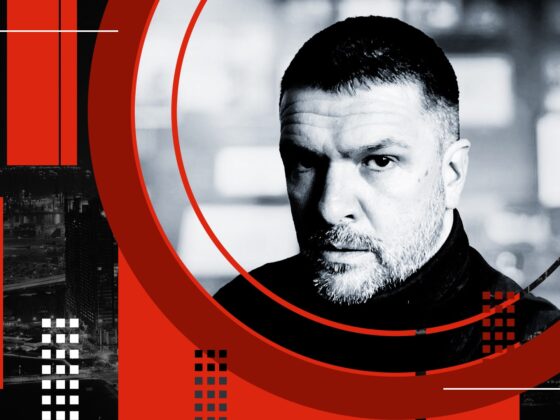“[Twitter] is as close to humanity’s stream of consciousness there is. It makes complete sense that the man behind Neuralink, Musk’s company exploring brain-machine interfaces, would want unfiltered access to this digital consciousness.”
It’s mysterious. It’s futuristic. It’s ‘everything.’
It’s Elon’s x app.
With the prospect of Elon Musk’s acquisition of Twitter back on the table, it’s time to dive into x, how it relates to Twitter, and what it means for you and me.
Let’s start with something I saw on Twitter yesterday. Wittgenstein posted a video of a young man named Brandon showing off the microchips he had voluntarily implanted under the skin of both hands. To describe what he had done, Brandon used words like “installation,” “programming,” “coding.” The reporter called him a “walking computer.” With these chips, he can open the door to his home. He can open the door to his Tesla EV. He can “tap other people’s devices with his hand and instantly transfer his contact info, his portfolio, or his COVID vaccine card.” He’s thinking of getting a chip installed in his chest so he can read his temperature and other vital signs.
“It’s a perfect backup. Something you never forget. Something that doesn’t break. Something that won’t fail you,” he said enthusiastically.
Yes, imagine that. Gone are the days when a thief simply steals your keys. Now, he will chop off your hand. And if you think that sounds extreme, it isn’t. We are all morphing into “walking computers,” our body parts only as valuable as the tasks they can perform.
Brandon wants Elon Musk to know what he’s done to himself. “It would make all of this worth it if maybe just a thumbs up from Elon or a simple emoji. I don’t know, that would be pretty cool.”
For Elon Musk to reach down from the heights of Mount Olympus and click that smiley face or that thumbs up would be the defining moment of Brandon’s life—at least for as long as the tweet was trending. It would make him relevant.
Back in 2020, Dr. Yuval Noah Harari warned World Economic Forum attendees that “Whereas in the past humans had to struggle against exploitation, in the twenty-first century the really big struggle will be against irrelevance. And it is much worse to be irrelevant than exploited.”
No, Harari, the worst thing one can be in the 21st century is exploited and irrelevant. Uyghurs and Falon Gong in China are prime examples. They are irrelevant because of their old-fashioned religious ideals. They are exploited because, in this era of transhumanism, body parts (down to a genetic level) can be extracted from the irrelevant for experimentation or as replacements of the uber wealthy’s faulty body parts.
Addressing UN representatives, in June of 2019, a lawyer for the China Tribunal, Hamid Sabi, presented evidence which found that a “very substantial number” of prisoners were “cut open while still alive for their kidneys, livers, hearts, lungs, cornea and skin to be removed and turned into commodities for sale.”
Brandon and the billions who follow in his footsteps are being enticed with shiny toys to believe that being on the “cutting edge” (pun intended) of technology will enhance their lives. What is really happening is they are falling right into the hands of the transhumanist elite—and happily so. Relevance will never improve with an emoji from Musk, as much as people think it will. Relevance now lies in how exploitive we are. In order for us to be exploited in the most efficient manner, AI needs masses of data. We are all data mines.
“The one who controls Data will be the World Leader.” So said Indian Prime Minister Narendra Modi at the WEF’s annual Davos meeting back in 2018.
Musk wants our data, just like the Chinese government wants it, just like the US government wants it, just like the WHO wants it, just like Google and Facebook want it. Perhaps this rivalry is being used by AI to bring out the best in each. Perhaps at some point the best of what they have all achieved will be combined together and put through a sieve to extract the gold from the silt of our collective minds. Without a massive amount of data, algorithms cannot be created to manipulate and control people’s minds.
Algorithms are specific descriptions of step-by-step actions that need to happen to achieve a particular outcome. They are one of the most common instruments of knowledge sharing.
The term algorithm derives from the name of Muhammad ibn Mūsā al’Khwārizmī, a ninth-century Persian mathematician. His latinized name, Algoritmi, meant “the decimal number system” and was used in this meaning for centuries.
All the way back to Ancient Greece, we find Nicomachus of Gerasa (a mathematician and music theorist) and Euclid (known as the father of geometry) creating simple algorithms, which they described as step-by-step actions. It’s interesting to note that Nicomachus believed numbers to have mystical properties.
You would think over time this belief in magic would have been debunked; that we would have dissected these mysteries and made them knowable. But the more complex the algorithms, the more mysterious they have become. With the invention of AI, they seem to have taken on a life of their own.
Elon Musk understands this very well. At an MIT symposium, he gave this warning:
“With artificial intelligence, we are summoning the demon.”

Musk’s solution is not to shut Pandora’s box and seal it forever. Rather, we should allow the demon inside our heads and become one with it.
We can explain their principles. For instance, we can say that an algorithm uses an artificial neural network. We can also explain how the network was created, and how the input resulted with a particular output. What we cannot explain, however, is why this particular result was the output of the algorithm.
Eric L. Loomis was sent to prison by a software program’s secret algorithms. Experts tried to understand why the COMPAS algorithm assessed him as a high-risk criminal, but it was impossible.
I find this terrifying. Twenty-four hours a day, we are being analyzed and categorized by artificial intelligence using a process we don’t understand.
The demon, as Musk says, is out of the box and we must let it in.
If we return to Twitter, it should now become obvious why Musk desires it. I discuss it in my essay I Dream of Musk, quoting a Forbes article by Oliver Rennick:
“[Twitter] is as close to humanity’s stream of consciousness there is. It makes complete sense that the man behind Neuralink, Musk’s company exploring brain-machine interfaces, would want unfiltered access to this digital consciousness.”
If controlling data means ruling the world, Twitter is a perfect place to get ahead in the race. Here we find every psychotic despot’s dream come true—an endless supply of raw, unfiltered data extracted from an endless supply of willing victims.
Tweektown observed:
Musk is going to do something with all of that data that is housed in Twitter’s servers and algorithms, which could be fed into Neuralink… the perfect data set. Everything the world has typed into 140-character tweets since its inception, with an AI learning it all… and then the BCI (brain-computer interface) being inserted, quite literally, into your head.
Twitter completes what I call Musk’s Circle of 5:
It means assigning you the small space your temporal body lives in and the virtual world your mind is enslaved to. It means monitoring the drugs flowing through your body, drugs you cannot live without because your immune system has been shot by years of ingesting those very same drugs.
It means the microchip in your hand, above your heart, and in your brain. It means the constant surveillance and ownership of all the data being collected. It means absolute control of everything from your unique heartbeat to your deepest and most hidden thoughts before you even think them.
Maybe you will be one of the millions Musk sends to colonize Mars. Sounds great until you put two and two together and realize why Musk is the only oligarch saying we need more people, not less.
According to scientists at the University of Manchester, human colonies on Mars will likely be built using the actual blood, sweat and tears of the astronauts who build them.
Water is scarce on Mars and it costs $2 million to send a single brick to the Red Planet, according to estimates. But astronauts can simply make their own concrete on-site using Martian dust and their own blood, according the journal Materials Today Bio.
Millions of humans, harvested like animals, in order to fulfill the grandiose dreams of insane billionaires.
Does anyone find it somewhat contradictory that at the same time Musk promises to bring free speech back to Twitter, he is touting the app that most heavily censors and surveilles users?
Not only that, but the “x.com” domain name was previously linked to the financial services startup that Musk founded and later merged with PayPal. As we all know, PayPal just tried to fine $2,500 from anyone spreading “misinformation.” Yes, yes, Musk put on his horrified face at this news. But surely, we should be aware by now that his horrified face is just one of many he wears, depending on which way the wind of opportunity blows.
Musk told his brother, Kimbal, that he had “an idea for a blockchain social media system that does both payments and short text messages/links like Twitter,” so, it’s safe to assume that his plan is to absorb Twitter into x.
“You have to pay a tiny amount to register your message on the chain, which will cut out the vast majority of spam and bots. There is no throat to choke, so free speech is guaranteed.”
It is very important that every single person can be identified to keep the data pure—no bots, no spam. It has nothing to do with free speech. Actually, free speech will not be a thing anymore. If the machine knows your thoughts before you do, then free speech becomes irrelevant. Any speech coming out of a person’s mouth or expressed on x will have already been analyzed, censored and corrected by the demon inside your head.
How will people pay for the privilege of using x? We can take a guess that it will be in Dogecoin
Dogecoin and Musk go together like peaches and cream. Of course, this ultimately leads to CBDCs, but Dogecoin could be the hook to draw people in. Musk has been tweeting about the memecoin for years, and now we can see that their partnership is turning serious in news headlines such as these:
Dogecoin Pumps as Elon Musk Agrees (Again) to Buy Twitter
So, he’s got Twitter to collect data from a lot of bodies and minds and he’s got a method of payment. How much farther does Musk want to take his app?
“You basically live on WeChat in China because it’s so useful and so helpful to your daily life. And I think if we could achieve that, or even close to that with Twitter, it would be an immense success,” Musk said.
Whether it’s Mark Zuckerberg’s Meta, that I write about in The Bloodsuckers, or Vitalik Buterin’s Ethereum and his SoulBound Tokens (SBTs) that I talk about in SoulBOUND, or Elon Musk’s x, or any number of others vying to be top dog,
The goal is to capture the masses in a virtual prison and feed off of them.
It imagined users floating through a digital universe of virtual ads, filled with virtual goods that people buy. There would be virtual people that they marry, while spending as little time as possible in the so-called “meatverse” — referring to the real world because humans are flesh and blood.
Yes, Meatverse, because we are all just fodder for their consumption.
The real world will be drab. But your fake world will be magical and marvelous. The further you go into the virtual world, the less interest you will have in the real one. Fake money will be spent on fake things. As you ingest a coke into your real-life immune compromised body, your robust and healthy avatar will be ingesting a fake coke. So, you will pay for that coke, not once, but twice.

Rubin advised in his paper, “If delivering the Metaverse we set out to build doesn’t scare the living hell out of us, then it is not the Metaverse we should be building.”
But that is nothing compared to the scariness Musk has unleashed. And that scariness is Musk’s Neuralink, which he certainly envisions connecting to x.
Musk secretly founded Neuralink in 2016 with a mission to create brain implants that will enable humans to merge with AI. He has described its technology as a “FitBit in your skull.” What is Fitbit? A device to collect health data owned by Google.
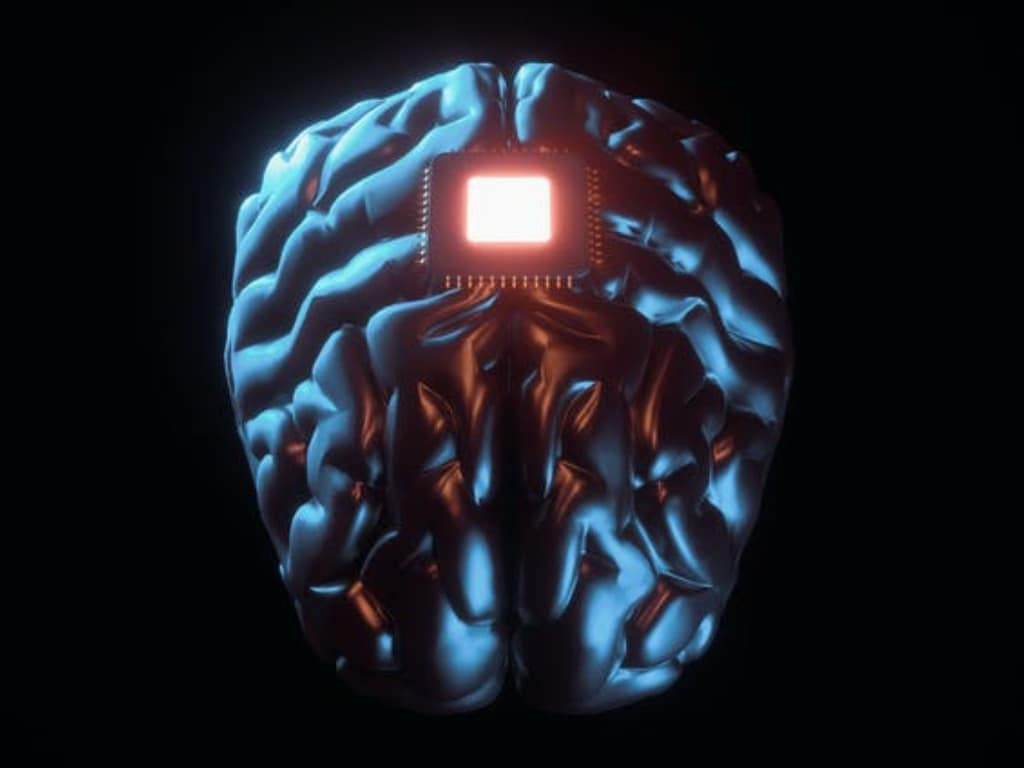
Neuralink goes well beyond a wearable monitoring and data-collecting device like Fitbit. It goes beyond Meta’s awkward headset. It is inside your brain, connecting microchips directly with AI.
In 2020, the MIT Technology Review dismissed Neuralink as “neuroscience theater,” writing that Musk is making “promises that will be hard to keep” and risks being a disappointment. We dismiss Musk’s ambitions at our peril, just as we make fun of Zuckerberg’s Metaverse. Behind the scenes and out of the limelight, others are quietly working on making these things happen, too. Companies such as Synchron and BrainCo.
But they all involve wearables, or with Synchron, access to the brain via blood vessels and leaving electrodes in the “walls of the vasculature rather than penetrating into the sensitive bulk tissue of the brain.”
Yet, it is Elon Musk who everyone worships. The guy with the most invasive, horrific method of drilling holes in your head and implanting microchips.
Starlink and SpaceX are the glue holding Musk’s vision together.
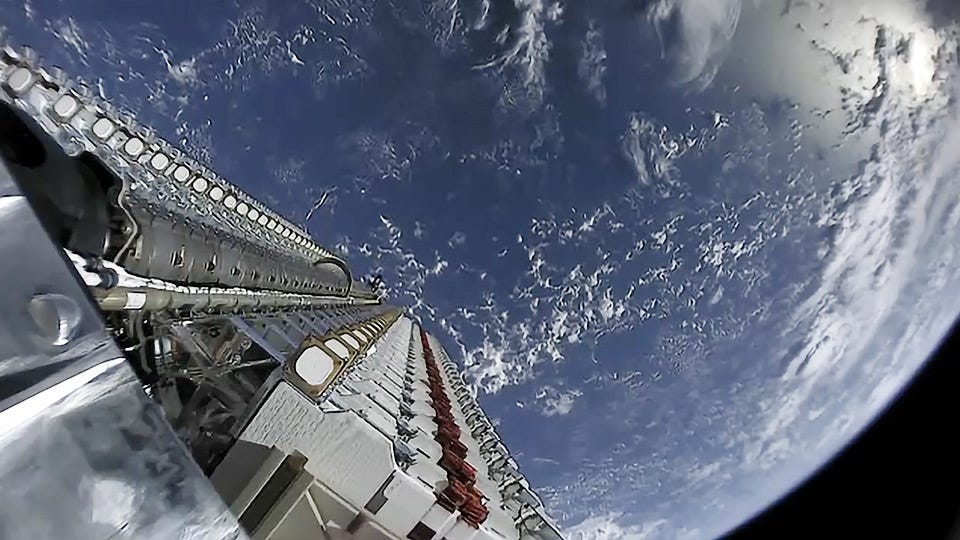
The Starlink website describes it as “the world’s first and largest satellite constellation using a low Earth orbit to deliver broadband internet capable of supporting streaming, online gaming, video calls and more.”
This satellite internet constellation is operated by SpaceX, providing satellite Internet access coverage to 40 countries. According to Wikipedia, SpaceX started launching Starlink satellites in 2019. So far, Starlink consists of over 3,000 mass-produced small satellites. In total, nearly 12,000 satellites are planned to be deployed, with a possible later extension to 42,000. SpaceX expects more than $30 billion in revenue by 2025 from its satellite constellation.”
Elon Musk has boasted, “My proceeds from the PayPal acquisition were $180 million. I put $100 million in SpaceX, $70m in Tesla, and $10m in Solar City. I had to borrow money for rent.”
Inspiring! Brandon and everyone else who chips themselves should have faith in Musk’s good intentions. After all, he’s worked so hard for the good of us all, to make sure we remain relevant until every last bit of our bodies and minds have been exploited.
When Musk agreed to open Pandora’s box and let the demon out, what was he promised in return? I leave it up to you to decide.


